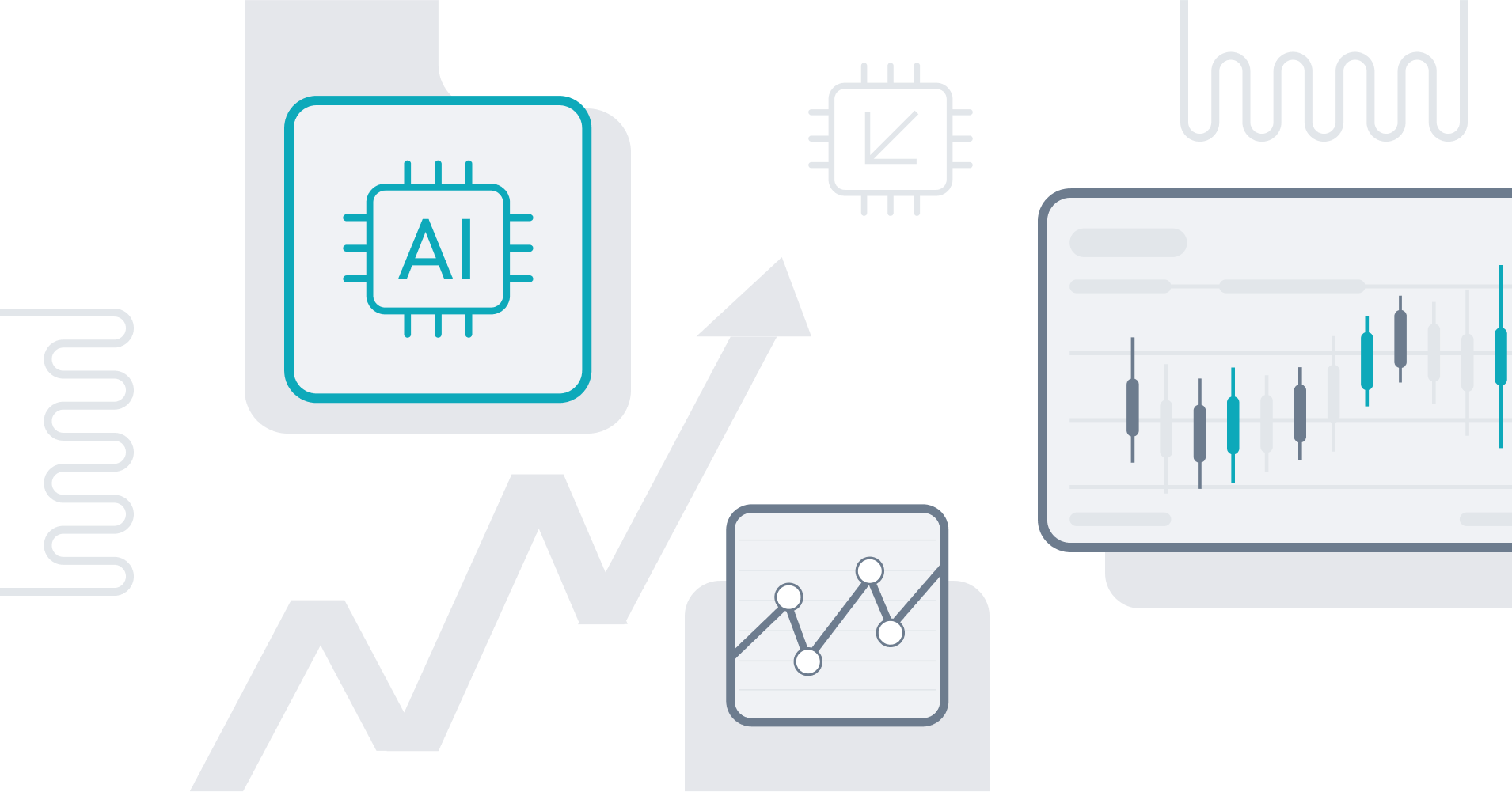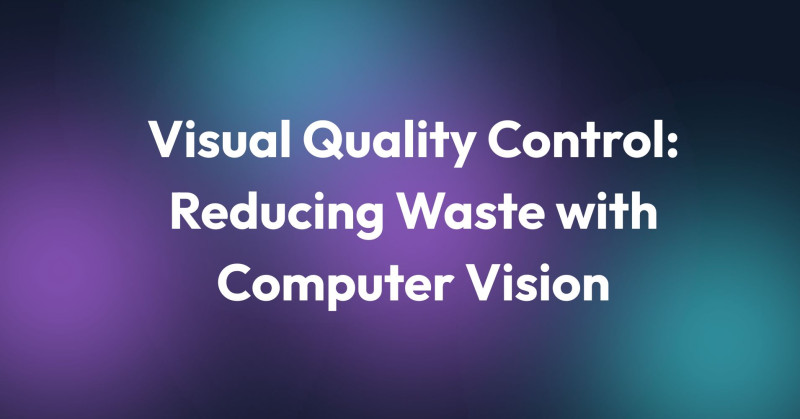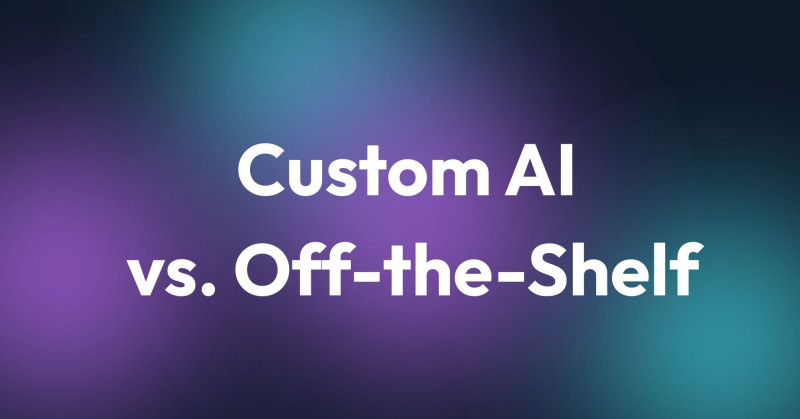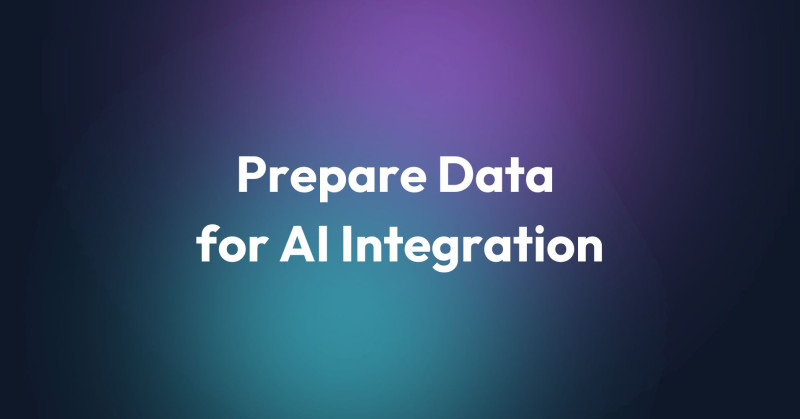Think of AI as the engine in a high-performance car, driving your business toward its goals with unmatched speed and efficiency. With AI, companies are achieving remarkable results, such as a 40% increase in productivity, as reported by McKinsey. In this article, we will delve into the transformative power of AI and provide a step-by-step guide to seamlessly incorporating AI into your operations, enabling you to harness its full potential for innovation and growth.

Artificial intelligence can be your best friend in achieving business objectives with smaller resources and greater efficiency. Discover the potential of AI-powered solutions!
How AI Implementation Supports Your Business Needs?
AI implementation supports your business needs by providing solutions to critical challenges. It's not a silver bullet to all difficulties, but can significantly improve your business operations. According to data gathered by Forbes, over 60% business owners says that AI increase productivity and improve customer relationship.
AI technologies can automate routine tasks, optimize resource allocation, and deliver data-driven insights. AI use in various sectors, such as customer service, logistics, and finance, can streamline processes and improve performance. By developing AI systems tailored to your needs, you can achieve goals more effectively. AI can help in making informed decisions, reducing costs, and enhancing customer experiences.
Let's dive deeper into business outcomes of incorporating artificial intelligence on real-life examples!
AI and Its Potential: Case Studies
Numerous case studies highlight the potential of AI applications in different industries. For instance, AI use in healthcare has led to early disease detection and personalized treatment plans. In finance, AI models predict market trends and identify fraudulent activities. These AI projects demonstrate how AI technologies can address complex business problems and drive innovation. By aligning AI initiatives with your business objectives, you can harness its full potential to achieve remarkable results.
Implementation of AI in Ecommerce
AI implementation in ecommerce has revolutionized the industry. AI solutions like chatbots, personalized recommendations, and inventory management systems enhance customer experiences and operational efficiency. Developing AI systems for ecommerce can lead to improved sales, customer retention, and supply chain optimization. By incorporating AI into your business strategy, ecommerce companies can stay competitive and meet evolving customer demands.
AI Adoption in Sustainable Agriculture
AI adoption in sustainable agriculture promotes efficient resource use and environmental conservation. AI technologies like precision farming, crop monitoring, and predictive analytics help farmers make data-driven decisions. AI experts develop AI models to optimize irrigation, pest control, and crop yields. These AI projects contribute to sustainable practices, aligning with business goals of reducing environmental impact and enhancing productivity.
Impact of AI for Fair Trade
The impact of AI on fair trade is significant. AI solutions can trace supply chains, ensure ethical sourcing, and verify product authenticity. By incorporating AI into fair trade practices, businesses can enhance transparency and build consumer trust. AI development services can create models that monitor compliance with fair trade standards, addressing business problems related to unethical practices and fraud.
Benefits of AI in Your Business
The benefits of AI in your business are extensive and impactful. By automating routine tasks, AI frees up valuable time for employees to focus on more strategic activities. For example, AI can handle data entry, customer inquiries, and scheduling with greater efficiency than human workers, reducing operational costs and improving productivity.
Decision-making
AI also significantly enhances decision-making processes. Through predictive analytics, AI can analyze vast amounts of data to forecast trends, customer behavior, and market conditions. This allows businesses to make informed decisions quickly, staying ahead of competitors and adapting to changes in the market with agility.
Seamless Customer Interactions
Another key benefit is the improvement in customer interactions. AI-powered chatbots and virtual assistants can provide 24/7 support, addressing customer queries and issues promptly and accurately. This not only boosts customer satisfaction but also ensures that your business can cater to global customers across different time zones without additional staffing costs.
Application to Diverse Business Needs
AI applications are diverse, ranging from natural language processing, which can understand and generate human language, to machine learning algorithms that continuously improve from data. These technologies provide solutions to various business challenges, whether it’s improving supply chain efficiency, detecting fraud, or personalizing marketing efforts.
Assessing Your Business Needs Faster
By implementing AI tailored to your specific needs, your business can achieve several critical goals. Increased efficiency is one such goal, where AI streamlines operations and optimizes resource utilization. Reduced costs come from automating tasks that would otherwise require significant human labor. Improved competitiveness is achieved through enhanced decision-making capabilities and superior customer service.
Enhanced Analysis
Moreover, AI can foster innovation by providing new insights and enabling the development of advanced products and services. It can identify patterns and opportunities that may not be evident to human analysts, opening up new avenues for growth and development.
In summary, the benefits of AI in your business include automation of processes, improved decision-making, enhanced customer interactions, increased efficiency, reduced costs, improved competitiveness, and fostering of innovation. By leveraging AI technologies, businesses can not only solve existing challenges but also uncover new opportunities for growth and success.
How to Use AI in a Small Business?
Using AI in a small business can drive significant improvements in efficiency and growth. Start by identifying key areas where AI can address business problems, such as customer service or inventory management. Partner with AI experts to develop scalable AI models that fit your budget. Incorporate AI into your business gradually, starting with pilot projects to demonstrate value. Small businesses can leverage AI technologies to compete with larger enterprises and achieve their goals.
Step-by-Step Guide to AI Integration
Identify Business Problems: Determine specific business challenges that AI can address within your organization. Assessing your business needs is crucial to finding the right AI solutions.
Set Business Goals: Define clear objectives for AI implementation. Align these goals with your overall business objectives to ensure that AI initiatives drive desired business outcomes.
Consult AI Experts: Engage with AI development services and experts to evaluate the best AI technologies and applications for your business. Their expertise can help navigate the complexity of AI integration.
Develop an AI Model: Collaborate with AI development teams to create tailored AI algorithms and models that address your specific business needs. Focus on developing AI that aligns with your business processes and goals.
Pilot AI Projects: Test AI applications on a small scale to evaluate their effectiveness and impact on business operations. Using AI tools in controlled environments helps identify potential issues and benefits of AI adoption.
Scale Up: Gradually expand the use of AI across your business. Ensure that AI integration is aligned with your business objectives, leveraging new AI tools and solutions to enhance enterprise-wide operations.
Frequently Asked Questions (FAQ) About AI in Business
When integrating AI into business organizations, what must I consider?
When integrating AI, consider the specific business challenges you want to address, the goals and objectives for AI implementation, and the potential impact it has on your business operations. Assess your existing infrastructure to determine if it supports AI technologies. Consult experts to choose the right AI applications and ensure your team is trained to work with the right tools. Develop a clear AI adoption strategy that aligns with your business objectives and includes a roadmap for scaling artificial intelligence across your organization.
How can AI add value to a small business?
AI can add significant value to small businesses by automating routine tasks, thereby increasing efficiency and reducing operational costs. AI can enhance customer service through chatbots and personalized marketing, improving customer satisfaction and loyalty. It provides valuable insights through predictive analytics, helping small businesses make informed decisions and stay competitive. AI can also optimize supply chain management, reduce waste, and improve inventory management.
How can AI be used to improve business?
AI can improve business in several ways, including enhancing decision-making with predictive analytics, automating repetitive tasks to increase productivity, and improving customer interactions with AI-powered chatbots. AI can optimize supply chain management, detect fraud, and personalize marketing efforts. It also supports innovation by identifying new business opportunities and enabling the development of advanced products and services. Overall, AI helps businesses operate more efficiently and effectively, driving growth and competitiveness.
How much does it cost to integrate AI?
The cost of integrating AI varies widely depending on the complexity of the AI solutions, the size of the business, and the specific applications being implemented. Costs can include initial setup fees, software and hardware investments, data management expenses, and ongoing maintenance and support. Consulting with AI experts and conducting a cost-benefit analysis can help determine the investment required for your specific business needs. Generally, businesses should prepare for a significant initial investment, with long-term savings and efficiency gains offsetting the costs over time.
Seamlessly Implement AI in Your Company with Primotly
Innovations require the right partner. Primotly offers comprehensive AI development services to help you incorporate AI into your business. Our team of experts will guide you through the complexity of integration, from developing AI models to deploying technologies.
With Primotly, you can align AI initiatives with your business goals, ensuring successful AI projects that drive growth and innovation.





















